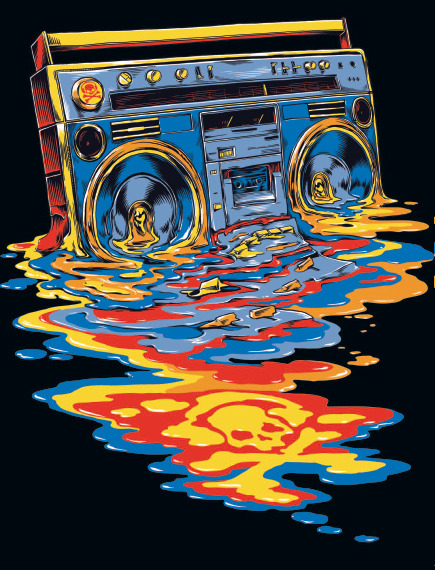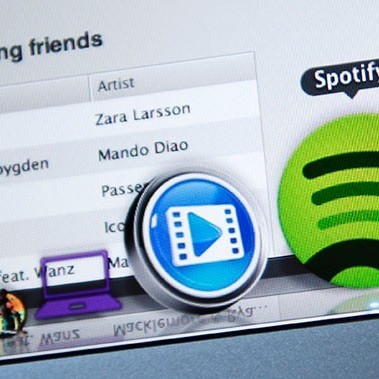The Official Funky Management Blog Based in the Washington, DC Metropolitan area, we are an artist management and representation company dedicated to discovering, developing and delivering exceptional talent to the world.
407 posts
Digital Download Sales Are Likely To Increase Again In 2013. But By One Measure, Downloads Actually Peaked
Digital download sales are likely to increase again in 2013. But by one measure, downloads actually peaked in 2011. Download sales accounted for 73% of digital revenues in 2011 and fell to 70% last year, according to annual shipments tracked by the Recording Industry Association of America (RIAA). Not that download sales have declined over the years. Track and digital album sales have each grown every year since the RIAA began reporting them in 2004. As a percent of total revenue -- counting both physical and digital revenue as well as synchronization royalties -- download sales rose to 40% from 36% in 2011; 31% in 2010; and 24% in 2009. Nor have download sales declined in dollars. In fact, annual download sales continue to grow each year. Track and album sales grew by $235 million last year and gained a combined $912 million in the three-year period of 2010 through 2012. Download revenue is likely to grow again in 2013 by very low single digits. Yet new business models are eating into downloads' dominance. Services such as Spotify, Pandora and SiriusXM grew by $405 million in 2012 and $1.22 billion in the three-year period of 2010 through 2012 -- both much higher than downloads' gains. Another key factor: download sales growth has almost stalled this year after years of double-digit gains. But downloads' grip on digital revenues will ease over time because subscription and streaming services are experiencing high growth rates. Subscription and streaming services grew by 69% and 59% in 2011 and 2012, respectively. Royalties from services that pay royalties to SoundExchange -- such as Pandora, iHeartRadio and SiriusXM -- grew by 58% last year. The market is clearly shifting toward streaming services. The numbers suggest we may be beyond the tipping point.
More Posts from Funkymgmt-blog-blog
Band managers don’t exactly have it easy. They’ll typically book the shows, do the accounts, negotiate deals, promote the band, manage the merch, and provide a legal foundation for the band. In short, they’re a jack of all trades, and in this post we’re going to look through a few tools that can make a few of the tedious management tasks a bit easier.
#1 A tablet / good smartphone
With so much travelling around and going between meetings, a tablet is a handy investment for any manager. Not only does it mean you don’t have to lug around a hefty laptop, but it makes your journey time a little bit more productive, as you can quickly edit contracts on the bus, or post social network updates on behalf of the band.
I’d also advise that if you’re going to do anything copy-heavy e.g. writing blog posts, editing contracts, updating the band website, that you get yourself a tablet keyboard case, as they’re great for speeding things up.
#2 A good lawyer & a set of contracts for every situation
As a manager, you’re likely going to have to negotiate a number of deals for the artist you’re working with. Many larger organisations in the music industry have exceptional in-house legal teams who can make your life very difficult if you don’t know what you’re doing. Find yourself a brilliant lawyer, and get a set of music contract templates so that you know what a standard agreement should look like, and why the deal you’re negotiating differs.
#3 Use SaaS (software as a system) tools to save you time
Nowadays, there are so many SaaS platforms to save you time in every aspect of your career. Whether you use accounting software like Freshbooks, CRM software, or even music-specific platforms like Dizzyjam to print and manage your merch, SaaS can be a great way of cutting down the time you spend on tedious jobs, so you can free it up for the important stuff.
#4 Contacts, contacts, contacts
When it comes to management, who you know is important. Invest your time networking at music industry conferences to develop your network of contacts – you never know when you might need them.
#5 A Blog
In my experience, blogging is invaluable – yet it’s impossible to predict why in foresight. I no of no blogger who hasn’t seen the value in blogging, and yet few of the bloggers I know could have predicted why it’d become invaluable to them. Because of this blog, I’ve had my content featured in the Singapore music education syllabus, I’ve met countless friends around the globe, who have also become important contacts. Blogging is an excellent way of reaching more of the people you want to meet – whether that’s for you as a manager, or for the band that you manage.
In June, David Lowery, singer-guitarist of Cracker and Camper Van Beethoven, posted part of a royalty statement to his blog The Trichordist. Cracker's song "Low," he revealed, had been played 1,159,000 times on Pandora in three months; Lowery, in his capacity as the song’s co-composer, was paid $16.89. For 116,280 plays on Spotify, Lowery got $12.05. Meanwhile, "Low" racked up only 18,797 plays on AM and FM radio stations during the same quarter. But for far fewer spins, Lowery received far more money: $1,373.78, to be exact.
Just last month, Thom Yorke of Radiohead and producer Nigel Godrich pulled their Atoms for Peace project off of Spotify, citing similar inequities in how music-streaming services pay artists. "Make no mistake new artists you discover on #Spotify will [not] get paid,” Yorke declared on Twitter. “[M]eanwhile shareholders will shortly [be] rolling in it. Simples."
Maybe. Or maybe it's not quite as simples as that. The image of wide-eyed young musicians having their lunches eaten by rapacious corporations is pretty compelling, and the ongoing collapse of the record business makes it look even scarier. The week ending July 28 had the lowest total album sales documented since Billboard started using Soundscan to track sales in 1991.
But it's also worth considering who's paying whom when music gets streamed, and how that might change. Whenever you read a shockingly low number and worry about the fate of your favorite band, it's worth keeping three things in mind.
1) "The music business" is not the same thing as "the recorded music business"—especially for musicians. A recent survey by the Future of Music Coalition found that, on average, 6 percent of musicians' income comes from sound recordings. That's not an insignificant amount, but it's also a lot less than what nonmusicians might guess. (And, although there isn't reliable data from the pre-Napster era, anecdotal evidence suggests that the percentage has never been much higher.) Recordings are how listeners generally spend the most time experiencing music, but not how we spend the most money experiencing music. In practice, recordings mostly serve as promotion for the other ways musicians make money: performing, most of all, but also salaries for playing in orchestras and other groups, session work, and so on.
Continue Reading




